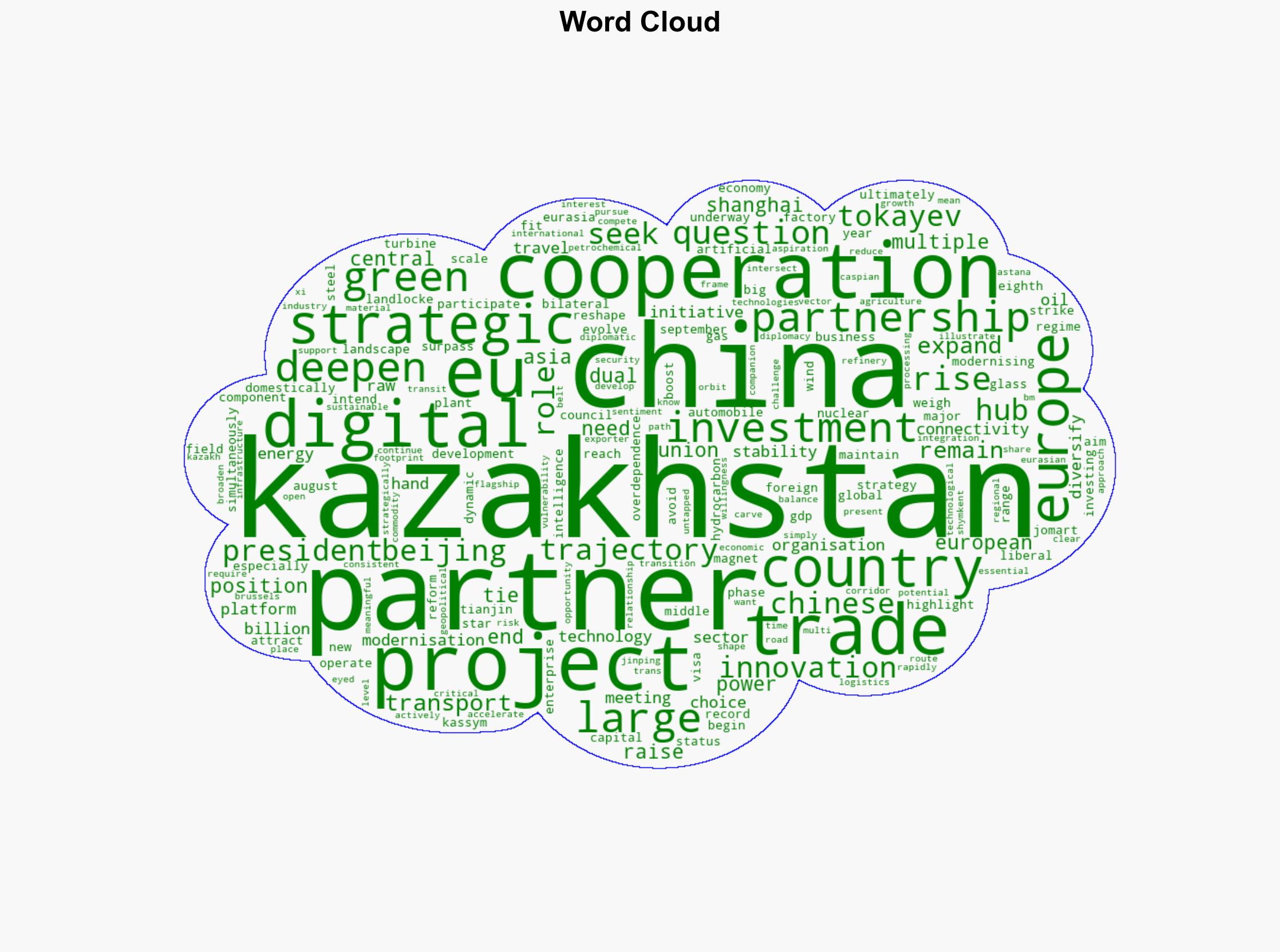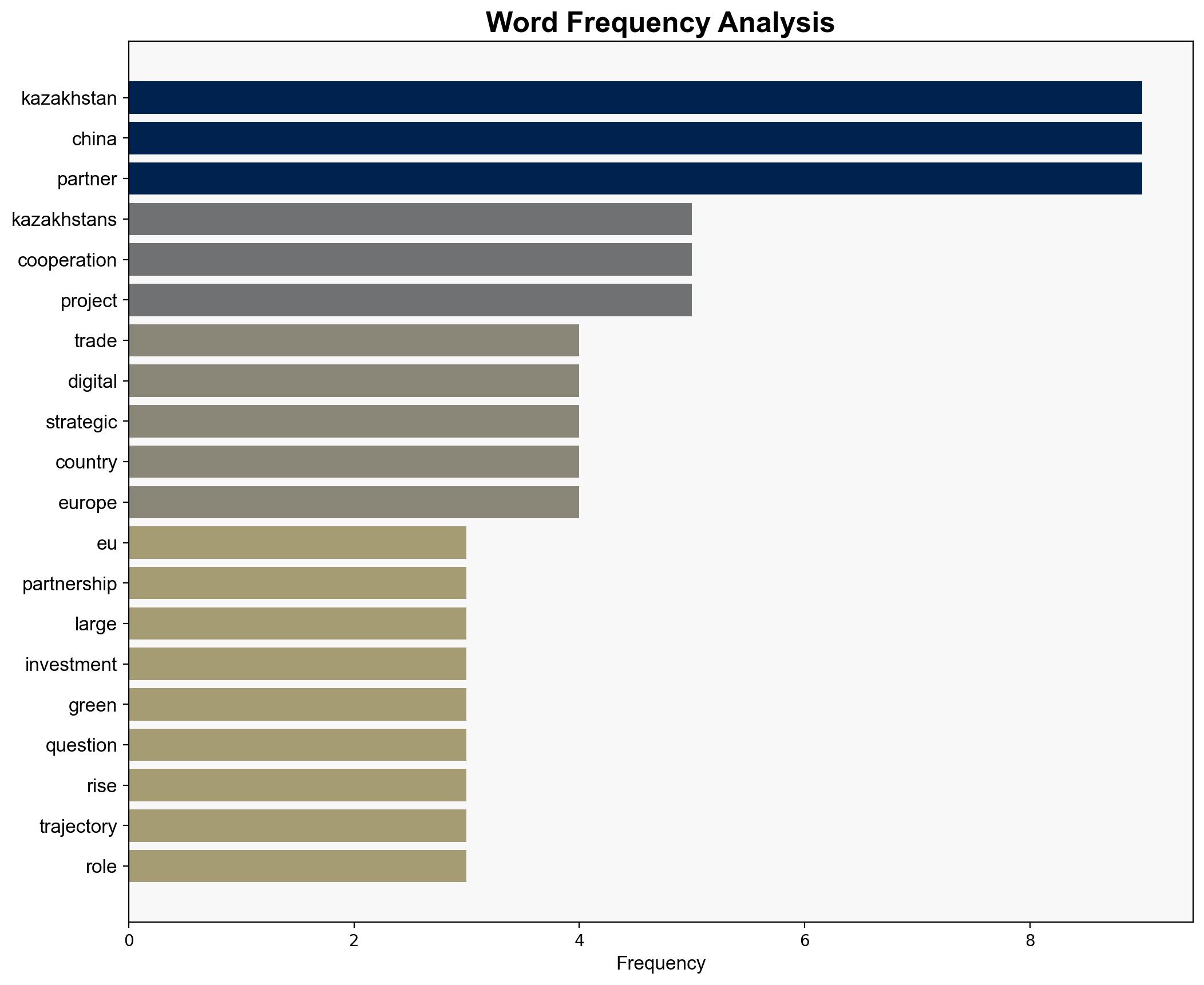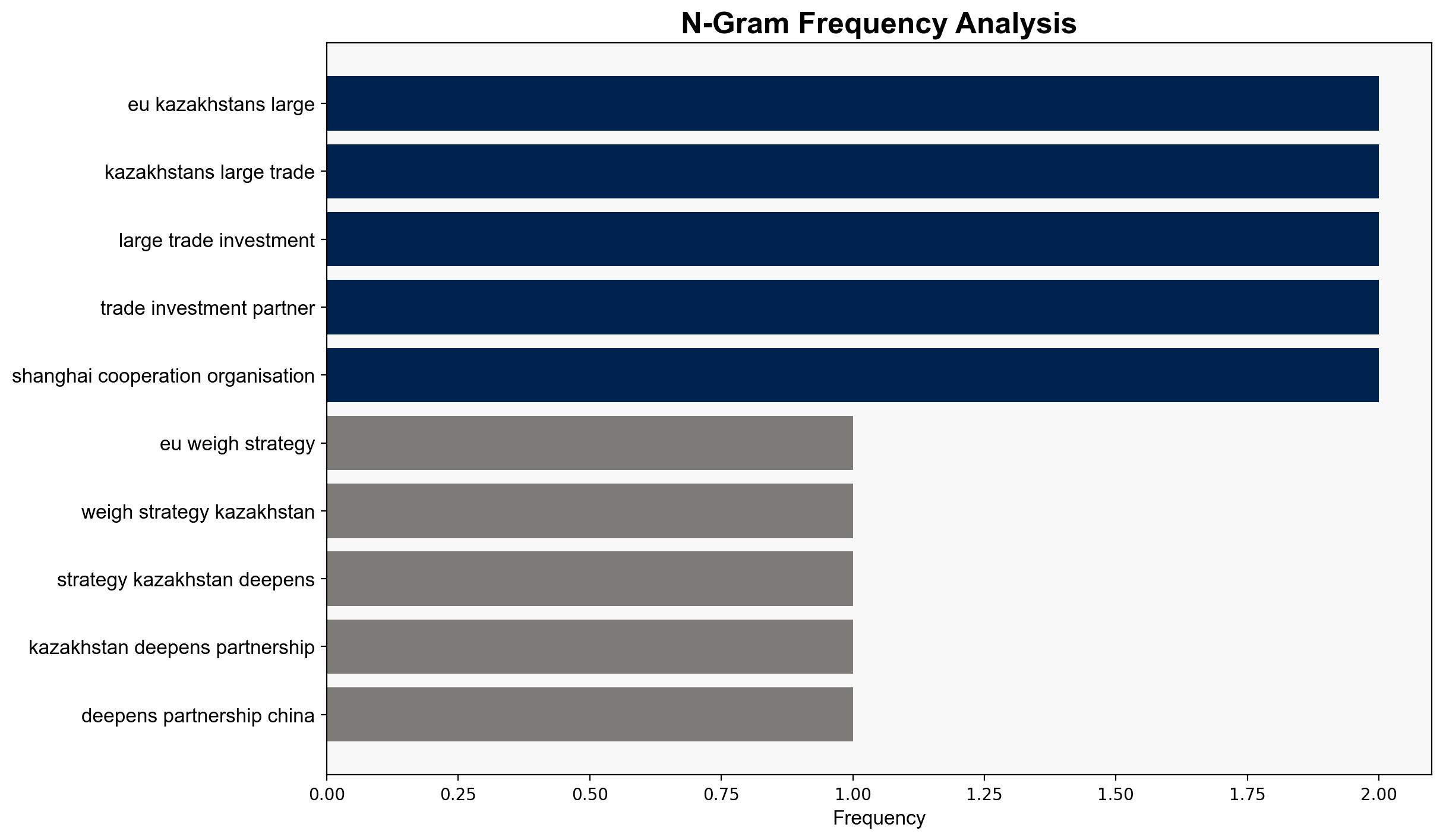EU weighs strategy as Kazakhstan deepens partnership with China Advocacy Lab Content – EURACTIV
Published on: 2025-09-11
Intelligence Report: EU weighs strategy as Kazakhstan deepens partnership with China Advocacy Lab Content – EURACTIV
1. BLUF (Bottom Line Up Front)
The European Union (EU) faces strategic challenges as Kazakhstan strengthens its partnership with China. The most supported hypothesis suggests that Kazakhstan’s multi-vector diplomacy will allow it to balance relations with both China and the EU, but the EU must act swiftly to enhance its influence. Confidence Level: Moderate. Recommended action: The EU should accelerate cooperation in green and digital technologies and infrastructure to maintain its strategic relevance in Kazakhstan.
2. Competing Hypotheses
Hypothesis 1: Kazakhstan will increasingly align with China, potentially at the expense of its relationship with the EU. This is supported by Kazakhstan’s active participation in Chinese-led initiatives and significant Chinese investments in Kazakh infrastructure and industries.
Hypothesis 2: Kazakhstan will maintain a balanced multi-vector foreign policy, leveraging its partnerships with both China and the EU to maximize economic and strategic benefits. This is supported by Kazakhstan’s historical approach to diplomacy and its expressed interest in diversifying partnerships.
Using the Analysis of Competing Hypotheses (ACH) 2.0, Hypothesis 2 is better supported due to Kazakhstan’s consistent strategy of multi-vector diplomacy and its efforts to attract diverse foreign investments.
3. Key Assumptions and Red Flags
Assumptions:
– Kazakhstan will continue to prioritize economic growth and modernization.
– The EU is willing and able to increase its engagement with Kazakhstan.
Red Flags:
– Potential over-reliance on Chinese investments could limit Kazakhstan’s diplomatic flexibility.
– The EU’s internal challenges may hinder its ability to respond effectively.
4. Implications and Strategic Risks
Kazakhstan’s deepening ties with China could shift regional power dynamics, potentially reducing EU influence in Central Asia. Economic dependencies on China may expose Kazakhstan to geopolitical pressures. Conversely, a balanced approach could enhance Kazakhstan’s role as a regional stabilizer. The EU risks being sidelined if it fails to adapt its strategy.
5. Recommendations and Outlook
- Enhance EU-Kazakhstan cooperation in green and digital technologies to align with Kazakhstan’s modernization goals.
- Develop infrastructure projects that improve connectivity and economic integration.
- Scenario Projections:
- Best Case: Kazakhstan successfully balances relations, enhancing regional stability and EU influence.
- Worst Case: Kazakhstan becomes overly dependent on China, diminishing EU strategic interests.
- Most Likely: Kazakhstan maintains a balanced approach, but EU influence remains limited without proactive engagement.
6. Key Individuals and Entities
– Kassym-Jomart Tokayev
– Xi Jinping
7. Thematic Tags
national security threats, regional focus, economic diplomacy, strategic partnerships




